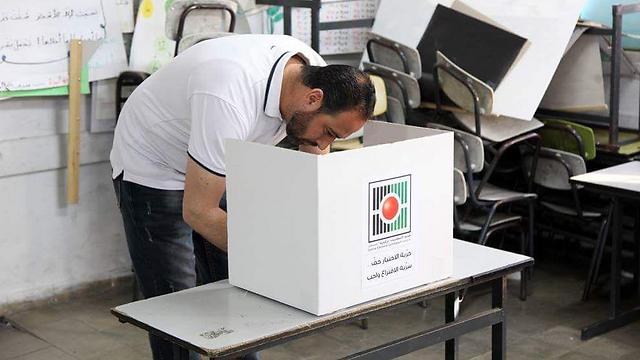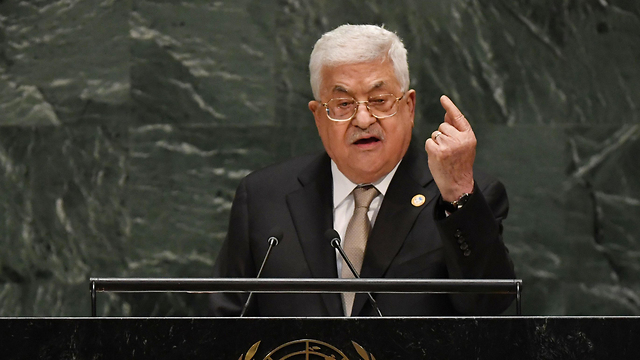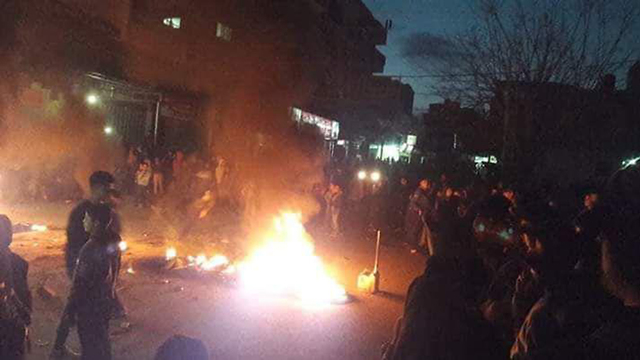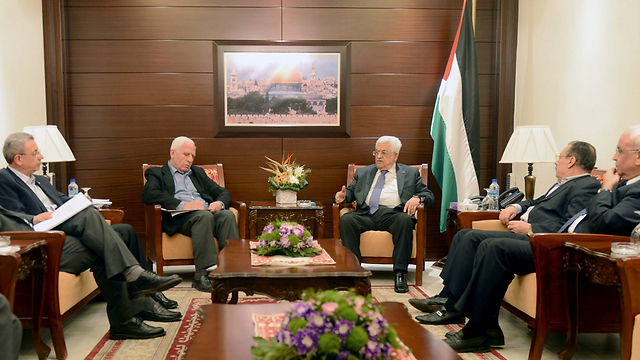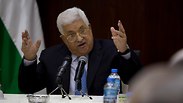
PA, Hamas election moves met with skepticism
Palestinian analysts suggest both sides trying to avoid blame for lack of elections, argue poll would be impossible without internal reconciliation or participation of East Jerusalem voters
The meeting included CEC Chairman Hanna Nasir and a delegation of commission members; Hamas political bureau chief Ismail Haniyeh; Yahya Sinwar, the movement's leader in Gaza; and representatives of additional factions.
“Hamas agrees to hold elections, which is a normal position of the movement; it’s a demand," says Hazem Qassem, a Gaza-based spokesperson for the group.
"The main focus is to have a national consensus concerning every part of the elections,” Qassem says, opining that previous experiences show that holding elections without a national consensus, "it didn’t work. We agree on holding inclusive elections that are both transparent and legal”.
Following Abbas’s speech to the UN General Assembly on September 26, the PA president promised to hold general elections in the West Bank, East Jerusalem and the Gaza Strip.
Nasir says the importance of the Wednesday meeting lies in the Gaza leadership’s approval of separating the presidential from legislative elections as Abbas requested, rather than holding them simultaneously.
“We have overcome the first obstacle and opened the first door," he says. "Currently, we are working on the form of representation and an elections law that includes all of the signed agreements and understandings between Fatah and Hamas".
Rergarding the Palestinian division and the possibility of opening the balloting to East Jerusalem residents, Nasir says elections may help to end this division, since the interaction between Fatah, the ruling party in the West Bank, and Hamas, within the framework of the elections, could set in motion a kind of dynamic that could solve some of their problems.
“Regarding Jerusalem, it has to be included, just like it was in (the presidential election of) 2005 and (the legislative election of) 2006. We are working to solve one issue at a time. In addition, we have different teams working on the problems gradually,” Nasir says.
However, against the background of division between the two ruling parties, Fatah and Hamas, Palestinian analysts rule out any real possibility of Palestinian elections that would include all of the West Bank, Gaza and East Jerusalem.
Ghassan Khatib, a political science professor at Birzeit University, says there is no chance the elections will happen. He regards the current talk to the contrary as an attempt by Fatah and Hamas to absolve themselves of responsibility for the lack of elections.
“Each part intends to show that it agrees to the call for elections,” Khatib says, adding that elections would be impossible without Palestinian reconciliation or the participation of East Jerusalem voters.
Moreover, he pointed to possible internal and external reasons for the announcement of elections.
“Both leaderships, in the West Bank and Gaza, have lost their people’s trust, and their legitimacy is eroding. In addition, European countries friendly to the PA are trying to convince Palestinians that holding elections would be useful”.
He says the popular uprisings in Lebanon and Iraq against poor economic conditions and government corruption play a role in the timing of the announcement.
“The tumultuous situation in other Arab states creates pressure on those who wish to avoid similar unrest that could happen here”.
Abd al-Sattar al-Qassem, a former academic, says neither Fatah nor Hamas wishes to be blamed for the division between them, and thus both are making public statements that avoid provoking the Palestinian people.
“In reality, no practical steps have been taken to achieve reconciliation; the Palestinian street is divided, as is the leadership,” says Al-Qassem, “There is no democratic environment, neither in Gaza nor the West Bank, to hold democratic elections”.
Al-Qassem adds that journalists are being suppressed in Gaza, while in the West Bank, liberals are being pursued by the security services.
“We don’t believe what they say on television. Palestinian people live under oppression. We need a year to relax and open the door for freedom before we speak about elections," he says.
He says that the legislative elections must be held simultaneously with the presidential election, so the results of the former won’t affect the latter.
“What if they hold legislative elections and then cancel the other (presidential election)? We have bad experience with both sides, and we’re used to lies and manipulation. What if Hamas wins? Is the PA going to respect that? It didn’t before. We need guarantees."
Article written by Dima Aubmaria. Reprinted with permission from The Media Line










